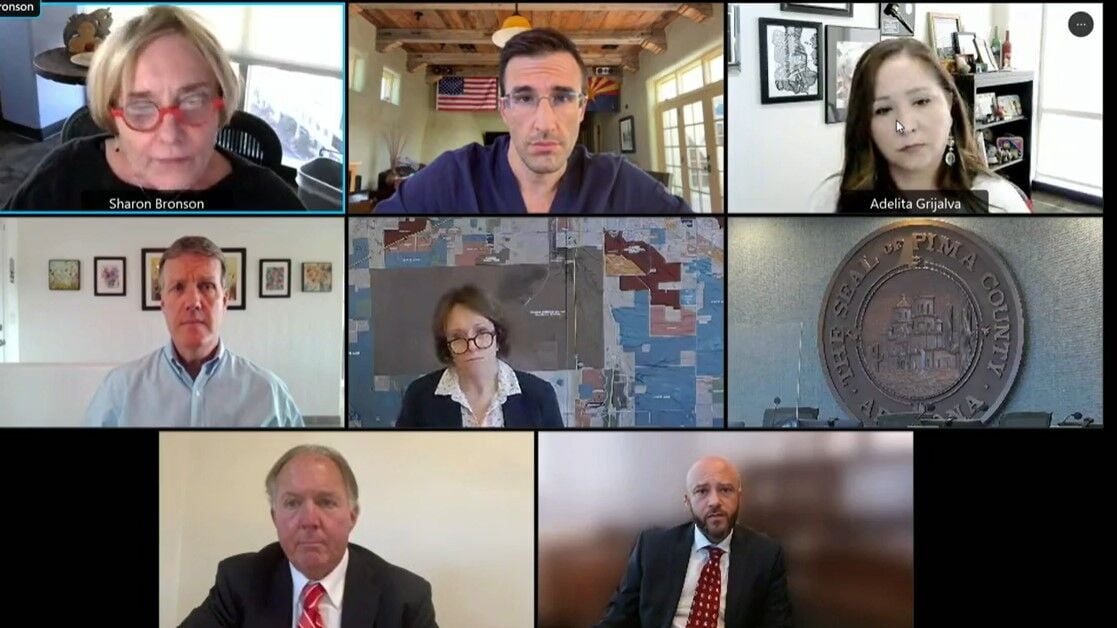Pima County supervisors have approved filing a lawsuit against Tucson over the city’s plans to charge residents in unincorporated areas higher rates for water.
Supervisors voted 3-2 during a special meeting Wednesday to direct staff to use outside counsel to prepare the lawsuit. Supervisors Adelita Grijalva and Matt Heinz voted against the motion to sue.
An earlier motion to seek a second opinion from an outside counsel on the differential water rates was not approved since the vote ended in a 2-2 tie.
Supervisor Rex Scott said the county has tried to reach an amicable agreement with the city over its plans to charge differential water rates, but the city has not responded to the county.
Scott said the board has a duty to “advocate for people we represent.” He said the city is wrong to now charge some customers in the county higher water rates than others.
“It’s wrong for city officials to decide to try to justify their decision after the fact because their lawyers told them to cover their tracks by doing a cost of service study,” Scott said. “They compounded that wrong by only using data from that study that corroborated their actions while ignoring other data.”
The rate increases will affect about 29% of Tucson Water’s customers in unincorporated Pima County.
The average Tucson Water customer in unincorporated county limits will see monthly water bills increase from $50.28 to $56.45 per month, according to the city.
Tucson officials said in response to the vote that city residents are subsidizing the cost of water delivery to residents in the county.
“Today’s vote by the Board of Supervisors lacks any legal basis, is purely symbolic, and sets a dangerous precedent,” said Mayor Regina Romero in a statement provided by the city. “The courts have affirmed the legality of differential water rates, and water utilities throughout the state already have them in place.
“It is incumbent upon our elected leaders to be strong stewards of our precious water resources, especially as we face the likelihood of a Tier 2 shortage at Lake Mead. I thank Supervisor Grijalva and Supervisor Heinz for their leadership, and for recognizing that this lawsuit is futile,” the mayor said.
Now, with increased rates set to take effect Dec. 1, the city anticipates earning about $10 million in extra annual revenue to use for infrastructure maintenance, climate resiliency and providing low-income assistance programs.
The city says it takes more water, and more water infrastructure, to serve unincorporated areas. Tucson has maintained that raising water rates is purely a policy decision and is justifiable on those grounds alone, but the City Council earlier directed staff to conduct the cost-of-service study anyway.
That decision came after Chris Avery, principal assistant city attorney, looked into the legality of imposing differential rates based on an existing state statute and Tucson city code. Both suggest increasing water rates should be based on the cost of providing water.
Avery also pointed to an Arizona Supreme Court ruling that says municipally owned water utilities can charge more for water service outside “corporate limits.” Ultimately, he recommended any differential rate adopted undergo a cost-of-service study before final adoption in order to withstand any legal challenges to the reasonability of the rates.
However, Avery said since revenues generated will stay within the utility, “Tucson Water’s rates, in the aggregate, are ‘cost-of-service’ rates.”
The consulting firm Galardi Rothstein Group and Raftelis conducted the cost-of-service study and found it costs 5% more for the water and infrastructure it takes to deliver water to unincorporated areas than within the city. The county has disputed the study.
“The county’s campaign to delegitimize the third-party cost-of-service study — which was conducted by the same consultant the county uses to set its wastewater rates — is not based in facts. The county cannot simply reject this study because it did not produce the results they were hoping for,” the mayor said.





